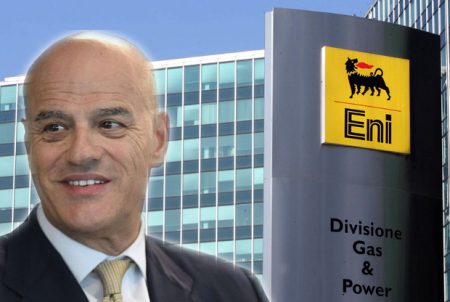A decisive step for the development of the CCS HyNet North West project of which Eni is the operator of transport and storage activities
Eni, as operator of the transport and storage of carbon dioxide of HyNet North West, announces the achievement of a great result which positions the company as a leading operator for Carbon Capture and Storage (CCS) projects in the UK.
The UK's Department for Energy Security and Net Zero (DESNZ) has announced the list of CO2 capture projects that will access the £20 billion funds allocated for Track 1 initiatives, foreseen by the Government to accelerate the country's decarbonisation: of the 8 selected projects, 5 belong to the HyNet North West Consortium (out of 7 presented), in which Eni is the operator for the transport and storage of CO2. The other 3 selected projects belong to the other CCS East Coast Cluster Hub (out of 14 presented) on the east coast of England.
With this decision, the United Kingdom confirms itself as one of the leading countries for the development of Carbon Capture and Storage (CCS). CCS is a technological process that makes it possible to avoid the emission of carbon dioxide from industrial activities into the atmosphere and has a fundamental role in the decarbonisation of "hard to abate" sectors, for which there are currently no other equally effective solutions. Precisely for this reason, the IPCC (United Nations Intergovernmental Panel on Climate Change) in its recent 2023 report defined CCS as an "essential" technology for achieving global climate objectives. The IEA (International Energy Agency) estimates that CCS will help reduce 10% of total emissions to be reduced over the next 30 years, reaching a value of 6,2 billion tons captured in 2050.
The implementation of the 5 projects selected as part of the HyNet consortium will contribute to the decarbonisation of the activities of large emitting companies in the industrial hub of the north-west of England, in the cement, "Waste to Energy" and hydrogen production sectors low carbon footprint. The volume of CO2 that will be captured within the first 5 selected projects, equal to approximately 3 million tonnes per year, will then be collected, transported and stored permanently by Eni in its depleted gas fields off the coast of the bay of Liverpool, deposits which have a total storage capacity of around 200 million tonnes.
Thanks to the development of the HyNet CCS project, Eni will play a leading role in the decarbonisation process of the United Kingdom which has identified the Capture, Transport and Storage of CO2 as one of the fundamental levers for achieving the objectives in the fight against climate change.
The HyNet project will transform one of the UK's most energy-intensive industrial districts into the world's first low-carbon industrial cluster. HyNet is expected to start up in the middle of the current decade with an injection rate of around 4.5 million per year in the first phase and then reach around 10 million tonnes per year of CO2 starting in 2030. The volume of CO2 avoided into the atmosphere represents a significant share of the 20-30 million target of reducing industrial emissions associated with the CCS by the UK government and the project will also contribute 40% to the national target of producing 10GW of low carbon hydrogen. In addition to the environmental benefits, HyNet CCS will promote a new impetus to the development of the region thanks to investments for the development of projects and the creation of new jobs linked to the promotion of new production chains. From an employment point of view, the project will allow the preservation of current levels and at the same time will favor the creation of approximately 56,000 new jobs in the period 2022-2030 in the Liverpool Bay area.
Furthermore, Eni has recently submitted to the North Sea Transition Authority (NSTA) the application for a carbon dioxide storage license in the depleted Hewett gas field, which affects an area located in the southern British North Sea and in which the company expects to develop a further CCS project which will contribute to the decarbonisation of the Bacton and Thames Estuary area in the country. The depleted and no longer productive Hewett gas field is an ideal site for permanently storing CO2 with a storage capacity of over 300 million tons of CO2.
Eni is proud to support the UK Government's strategy to contribute to the decarbonisation of the industry through a safe and mature technology such as CCS which adds to other important initiatives for the energy transition such as, for example, the energy production project renewable from the Dogger Bank offshore wind farm.
